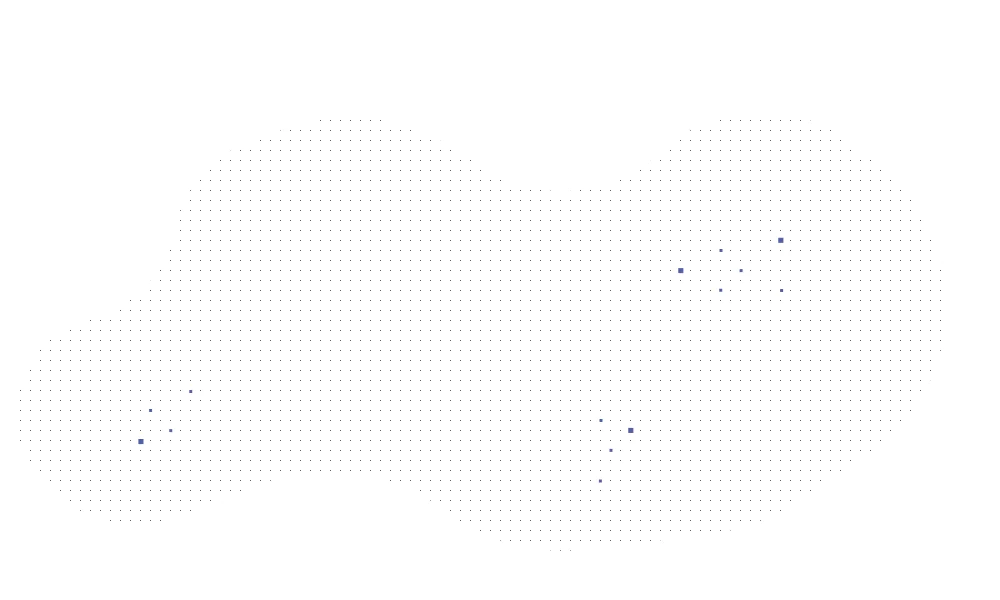
SDSC-Connect: Translating AI to Clinical Practice


Nora earned her Ph.D. in Computer Science/Bioinformatics from the University of Tübingen, where she focused on the in silico design of peptide-based vaccines using combinatorial optimization and machine learning. During her postdoctoral fellowship at Memorial Sloan Kettering Cancer Center in New York, and later as a staff scientist at the New York Genome Center, she worked on metagenomics, infectious diseases, and cancer. In 2015, Nora joined NEXUS Personalized Health Technologies at ETH Zurich where her focus shifted towards the management of clinical and biomedical research data. In May 2024, she joined the Swiss Data Science Center as Head of Biomedical Data Science.


Anna joined SDSC as a Data Scientist focusing on industry collaborations in July 2019. She completed her PhD in Bioinformatics at the University of Luxembourg, where she analysed large-scale heterogeneous datasets and leveraged multiple disciplines: Statistics, Network Analysis, and Machine Learning. Before joining SDSC, Anna worked as a Data Scientist at Deloitte Luxembourg, with a focus on computer vision and time-series analysis.Currently, Anna is a Principal Data Scientist based at the ETH Zurich office, where she leads biomedical collaborations with industry partners. Anna works on a range of projects: protein properties prediction, biomanufacturing optimization, statistical model evaluation and others.
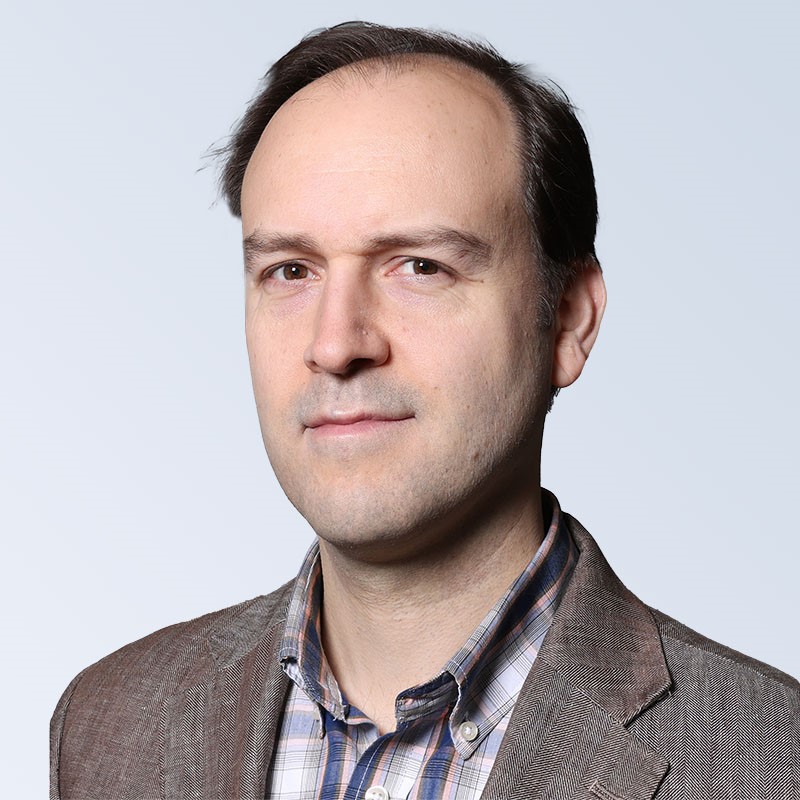

Guillaume Obozinski graduated with a PhD in Statistics from UC Berkeley in 2009. He did his postdoc and held until 2012 a researcher position in the Willow and Sierra teams at INRIA and Ecole Normale Supérieure in Paris. He was then Research Faculty at Ecole des Ponts ParisTech until 2018. Guillaume has broad interests in statistics and machine learning and worked over time on sparse modeling, optimization for large scale learning, graphical models, relational learning and semantic embeddings, with applications in various domains from computational biology to computer vision.


Snežana joined the SDSC industry team in June 2021 on a mission to advance adoption of modern data driven solutions in the domain of public health care. She has a background in experimental particle physics with a Diploma from the ETH Zurich and a PhD from the University of Geneva. Snežana pursued fundamental research in the field of high energy physics at CERN for nine years, harnessing the power of machine learning and statistical methods to uncover the traces of new physics in petabytes of proton-proton collision data and to develop innovative particle identification algorithms. Since 2018, Snežana served as a Data Science consultant, supporting partners from industries such as manufacturing, insurances, compliance services and online platforms in creating business value from internal and external data.


Marisol has a degree in Law and more than 15 years of experience working as a notary officer in Madrid. After relocating to Switzerland with her family, she obtained a certification to teach Spanish as a foreign language, dedicating four years to teaching Spanish online to students of all ages and backgrounds. Marisol has returned to her professional roots as an administrative assistant, joining the SDSC team in June 2023.


Uta joined SDSC in May 2024 as Head of Communications & Events. Prior to that, she held various business communication management roles in technology-driven companies in material and life sciences, information and telecommunications as well as automotive industries. Her specialty is to transform complex messages into simple stories to help organizations reach key audiences with relevant and compelling contents, leveraging media and digital channels.Uta holds a Master of Arts from Humboldt University of Berlin, a Master of Business Administration from La Salle University, Philadelphia, and a graduate certificate in Sustainability Leadership from Cambridge University. In her free time she enjoys sports and traveling with her husband and two sons.
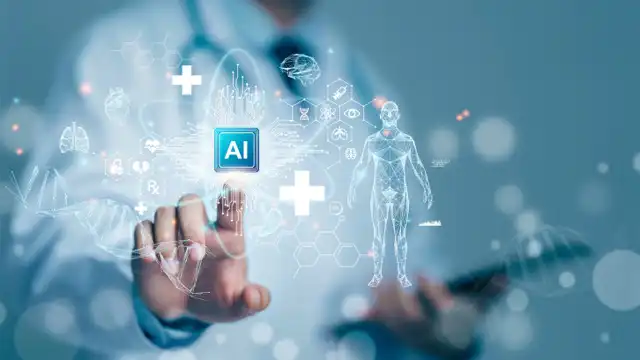
Presentation
SDSC-Connect: Translating AI to Clinical Practice
A Program of the Zurich AI Festival
Centered around the pivotal question, 'From Promise to Practice: What do clinicians need from AI?', this edition of SDSC-Connect brings together keynote speakers, thought leaders, and expert panelists to offer diverse insights into current challenges and emerging solutions, supported by focused presentations and real-world case studies. The program explores four critical areas at the intersection of AI and healthcare: Research, Validation, Practice and Trust.
Leveraging the collective expertise of leading voices in the health and biomedical domain, participants will gain deep insights and a distinctive learning experience that connects clinical needs with technological innovation, with the potential to connect with pioneers and peers and initiate conversations around collaboration.
Join the participants in pursuing key learning goals:
· Connect with leaders in clinical research, practice, and AI.
· Explore four essential focus areas: Research, Validation, Practice, and Trust.
· Build meaningful links across Switzerland, Europe, and the global clinical AI community.
Target audience:
Researchers, medical doctors, AI experts, data scientists, industry representatives (pharma, biotech) from the health and biomedical domain.
Confirmed speakers:
· Prof. Dr. med. Susanne Wegener, Senior Physician, Department of Neurology, University Hospital Zürich (USZ)
· Prof. Dr. Charlotte Bunne, Assistant Professor, Computer Science and Life Sciences Department, EPFL
· Prof. Dr. Michael Moor, MD, PhD, Assistant Professor, Department of Biosystems Science and Engineering, ETH Zürich
· Prof. Dr. Gunnar Rätsch, Head of Biomedical Informatics, Department of Computer Science, ETH Zürich
· Prof. Dr. Annie Hartley, Professor and Director, LiGHT (Laboratory for Intelligent Global Health and Humanitarian Response Technologies), EPFL
· Prof. Dr. Jean Louis Raisaro, Head of the Clinical Data Science Group at the Biomedical Data Science Center, Vaud University Hospital (CHUV)
· Dr. Snežana Nektarijevic, Senior Data Scientist, Swiss Data Science Center (SDSC)
· Dr. Sukalp Muzumdar, Head of GenAI Adoption, Scailyte
· Dr. Sabine Goldhahn, Lecturer at the Department of Health Sciences and Technology, ETH Zürich
· Dr. Jasmin Barman-Aksözen, Scientist and patient advocate for rare diseases, University of Zürich (UZH), ProRaris and International Porphyria Patient Network (IPPN)
· Dr. Alessandro Blasimme, Health Ethics and Policy Lab, Department of Health Sciences and Technology (D-HEST), ETH Zürich
Moderators:
· Dr. Nora Toussaint, Head of Biomedical Data Science, Swiss Data Science Center (SDSC)
· Prof. Dr. Guillaume Obozinski, Deputy Executive Director and Chief Data Scientist, Swiss Data Science Center (SDSC)
· Prof. Dr. Julia Vogt, Assistant Professor, Lead Biomedical Data Science Group, Department of Computer Science, ETH Zürich
· Dr. Anna Fournier, Principal Data Scientist, Swiss Data Science Center (SDSC)
Details
SDSC-Connect: Translating AI to Clinical Practice
Date & Time: Tuesday, 30 September 2025 | 09:30 - 18:00
Location: University Hospital Zurich (USZ), Large Lecture Hall EAST (Grosser Hörsaal OST), Schmelzbergstrasse 12, 8091 Zurich
Organized by the Swiss Data Science Center
Supported by ETH AI in Medicine Group | Zurich AI Festival
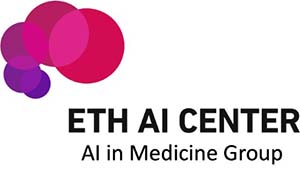

Zurich AI Festival is a flagship initiative by the ETH AI Center and Greater Zurich Area, co-created with the Amt für Wirtschaft, Kanton Zürich and Zürich Tourism, and leading partners from academia, industry, government, and the local AI ecosystem.
Programme
Agenda:
9:30 Arrivals | Welcome Coffee & Snack
10:00 Welcome Address
10:10 Keynote
· “From Promise to Practice: What do clinicians need from AI?” by Prof. Dr. med. Susanne Wegener, USZ
11:00 Session 1: Research
· Moderation: Prof. Dr. Guillaume Obozinski, SDSC
· "Virtual Cells and Digital Twins: AI in Personalized Oncology” by Prof. Dr. Charlotte Bunne, EPFL
· “Towards tool-using medical reasoning models” by Prof Dr. Michael Moor, ETH Zurich
12:00 Networking Lunch
13:00 Session 2: Validation
· "From Theory to Therapy: Advancing Critical Care with AI" by Prof. Dr. Gunnar Rätsch, ETH Zürich
· Expert talk by Prof. Dr. Annie Hartley, EPFL
14:00 Session 3: Practice
· Moderation: Dr. Anna Fournier, SDSC
· Case study: “Clinical AI journey - from raw data to bedside deployment” by Dr. Jean Louis Raisaro, CHUV, and Dr. Snežana Nektarijevic, SDSC
· Industry expert talk
15:00 Coffee Break
15:30 Session 4: Trust
· Moderation: Dr. Sabine Goldhahn, ETH Zürich
· Expert panel discussion with expert speakers incl. Dr. Jasmin Barman-Aksözen (Patient advocate, UZH), Dr. Jean Louis Raisaro (CHUV) and others
16:15 Wrap up
16:30 Networking Apéro
18:00 End of event
We look forward to welcoming you in Zurich!
Other events

Synthetic Data for Biomedical Applications


Before joining SDSC, Arshjot Khehra received his MSc in Artificial Intelligence from USI Lugano, where he completed his thesis on hierarchical graph reinforcement learning. Previously, he worked for 4+ years across India and Singapore gaining data science experience in insurance, logistics, and manufacturing sectors. He also holds a BSc in Industrial Engineering from PEC Chandigarh. Over the course of his career, Arshjot worked on a wide array of projects, such as, handwritten text recognition and generation, voice matching across phone call recordings, policy lapse rate prediction for customer retention, and automated insurance claim processing.


Matthias Galipaud obtained his PhD in evolutionary biology in 2012 from the University of Burgundy in Dijon (France), and held postdoctoral positions as a mathematical biologist at the university of Bielefeld (Germany) and the university of Zurich, where he researched the evolutionary theories of aging and mate choice. In 2020, he became a data scientist, developing machine learning solutions for startups in Switzerland and Australia before joining the SDSC Innovation Team in November 2022.


Valerio started his career working for 7 years as a particle-physics researcher at CERN. In 2016, he moved to consulting, applying data science in several industries. First, he joined the Quant team of Ernst & Young in Geneva. Later, he created his own company, SamurAI sàrl, providing consulting services for his clients. He also has a passion for teaching very complex subjects in simple terms. That is why he particularly enjoys offering training programs to private companies and universities. Valerio joined the SDSC in May 2022 as a Principal Data Scientist with the mission of accompanying industrial partners and other institutions through their data science journey.

Data Science for the Sciences


Guillaume Obozinski graduated with a PhD in Statistics from UC Berkeley in 2009. He did his postdoc and held until 2012 a researcher position in the Willow and Sierra teams at INRIA and Ecole Normale Supérieure in Paris. He was then Research Faculty at Ecole des Ponts ParisTech until 2018. Guillaume has broad interests in statistics and machine learning and worked over time on sparse modeling, optimization for large scale learning, graphical models, relational learning and semantic embeddings, with applications in various domains from computational biology to computer vision.

ENID | Enabling Innovation with Data Science at UNIL-EPFL


Prof. Olivier Verscheure is the director and founder of the Swiss Data Science Center (SDSC). Olivier also co-leads a joint training program between EPFL and HEC Lausanne, specifically designed for senior executives. Since 2018, Olivier has been a member of the Board of Directors of Lonza, a global leader in the life sciences sector. This company provides products and services to the pharmaceutical, biotechnology, and specialized healthcare industries.Olivier began his career at IBM Research after earning his Ph.D. in computer science from EPFL. He held several research and leadership positions at the IBM T. J. Watson Research Center in New York and co-created and co-directed the IBM Research center in Dublin, Ireland, before joining the EPFL in 2016.


Matthias Galipaud obtained his PhD in evolutionary biology in 2012 from the University of Burgundy in Dijon (France), and held postdoctoral positions as a mathematical biologist at the university of Bielefeld (Germany) and the university of Zurich, where he researched the evolutionary theories of aging and mate choice. In 2020, he became a data scientist, developing machine learning solutions for startups in Switzerland and Australia before joining the SDSC Innovation Team in November 2022.


Olivier joined the SDSC as a data scientist focused on industry collaborations in February 2023. He obtained a MSc in Physics (2017) from EPFL with a minor in Mathematics, and a PhD in Astrophysics (2021) from Aix-Marseille University. Before joining the SDSC, he worked in a small start-up, as a data scientist, on a variety of topics, including data wrangling, natural language processing and time series forecasting.
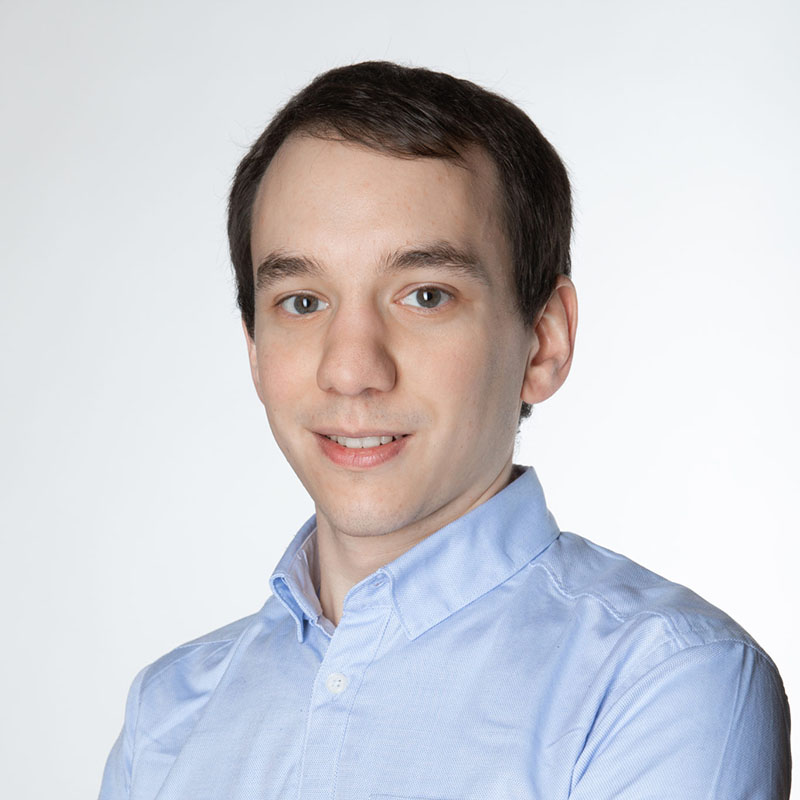

Clément became part of the SDSC team in January 2019, assuming the role of a Data Scientist with an emphasis on industry-oriented projects. He holds a Bachelor of Science degree in Physics, acquired in 2016 from the École Polytechnique Fédérale de Lausanne (EPFL) in Switzerland. Following this, he earned a Master of Science in Computational Science and Engineering in 2018, also from EPFL. Throughout his academic journey, Clément concentrated on leveraging Data Science and Machine Learning techniques to enhance efficiency in industrial processes. Subsequently, he developed a specialized interest in Generative AI, with a particular focus on Natural Language Processing (NLP), especially in the application of Large Language Models for innovation.
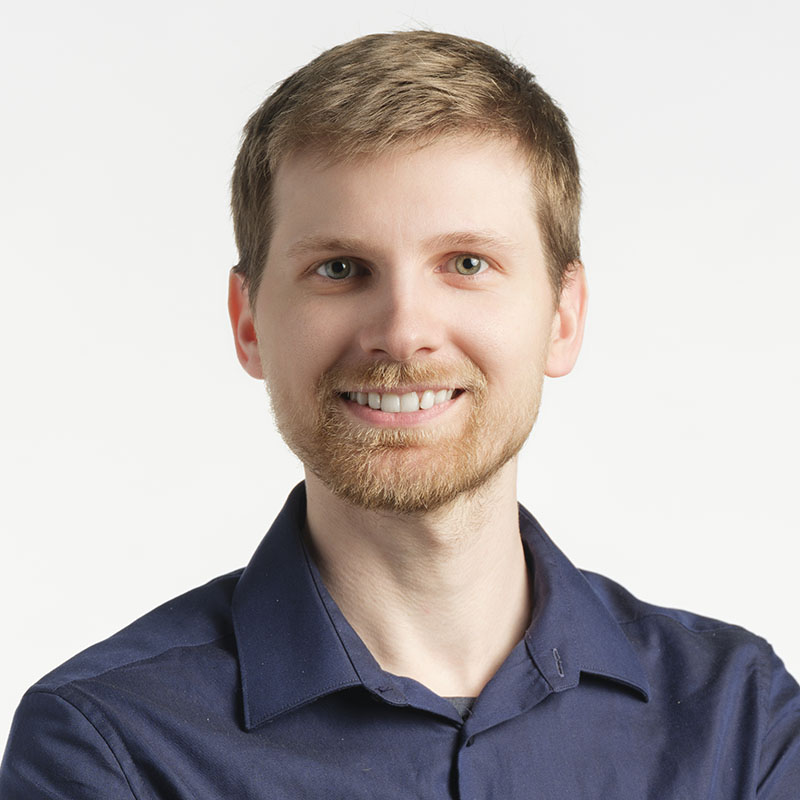

Thibaut holds a B.Sc in Computer Science from HEIG-VD. Before joining the SDSC, he worked in startups where he developped a diverse skill set combining cloud infrastructure, database and application development. Thibaut is very enthusiatic about new technologies and best coding practices and he is looking forward to supporting the team and its projects.

SDSC-Connect 2023


Prof. Olivier Verscheure is the director and founder of the Swiss Data Science Center (SDSC). Olivier also co-leads a joint training program between EPFL and HEC Lausanne, specifically designed for senior executives. Since 2018, Olivier has been a member of the Board of Directors of Lonza, a global leader in the life sciences sector. This company provides products and services to the pharmaceutical, biotechnology, and specialized healthcare industries.Olivier began his career at IBM Research after earning his Ph.D. in computer science from EPFL. He held several research and leadership positions at the IBM T. J. Watson Research Center in New York and co-created and co-directed the IBM Research center in Dublin, Ireland, before joining the EPFL in 2016.


Silvia holds an MSc in Computer Science from EPFL and a PhD in Computer Science from the University of York, UK. She has been a senior research fellow at the University of Trento and later at Politecnico di Milano, Italy. Here, she had the chance to work on Marie Curie and ERC projects relating to natural language processing. From 2012 to 2019, she was a Senior Manager and NLP expert at ELCA Informatique Switzerland, whose AI department she helped create and expand. Silvia joined the Swiss Data Science Center in 2019 and is currently its Chief Transformation Officer, in charge of the team leading organizations to digital transformation.


Roberto holds an M.Sc. and a Ph.D. in Particle Physics from the University of Torino, Italy. He has worked for several years in fundamental research as a senior fellow and data scientist at the CERN Experimental Physics division and on a research project supported by the Belgian National Fund for Scientific Research (FNRS). In 2018 he moved to EPFL to work on data mining and Machine Learning techniques for the built environment and renewable energies. He has started and led multiple collaborations with academic and industry partners in the energy domain. Roberto joined the SDSC in September 2021 as a Principal Data Scientist with the mission of accompanying industries, NGOs and international organizations through their data science journey.

SDSC Hackathon


Valerio started his career working for 7 years as a particle-physics researcher at CERN. In 2016, he moved to consulting, applying data science in several industries. First, he joined the Quant team of Ernst & Young in Geneva. Later, he created his own company, SamurAI sàrl, providing consulting services for his clients. He also has a passion for teaching very complex subjects in simple terms. That is why he particularly enjoys offering training programs to private companies and universities. Valerio joined the SDSC in May 2022 as a Principal Data Scientist with the mission of accompanying industrial partners and other institutions through their data science journey.


Sean obtained his PhD in Telecommunications Engineering from Dublin City University in 2001. Since then he has worked in large industry and startup contexts but has spent most of his time working in academic research labs with a strong applied focus spanning both Ireland and Switzerland. Sean has experience with all aspects of the research project lifecycle, ranging from project inception to proposal stage to project execution and reporting. Having a keen interest in technology trends and evolution, he strives to maintain a hands on approach with practical experience with key technologies in the rapidly changing cloud and analytics technology landscape. Sean works on the Renku Infrastrucuture team, leveraging his experience with modern cloud technologies, helping to make Renku easy to deploy and manage.
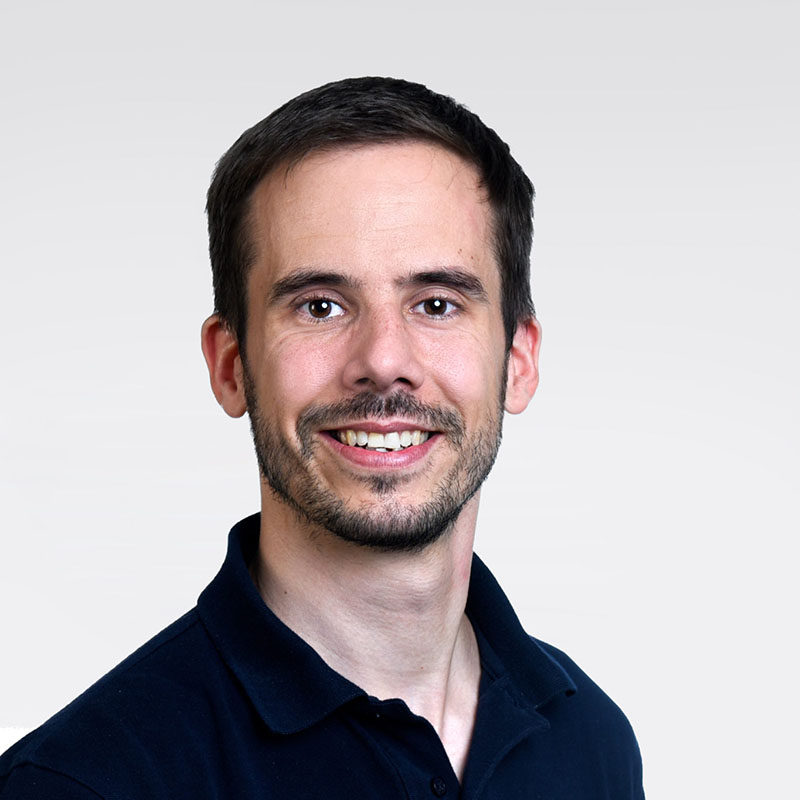

Luis is originally from Spain, where he completed his bachelor's studies in Electrical engineering, and the Ms.C. on signal theory and communications, both at the University of Seville. During his Ph.D. he started focusing on machine learning methods, more specifically message passing techniques for channel coding, and Bayesian methods for channel equalization. He carried it out between the University of Seville and the University Carlos III in Madrid, also spending some time at the EPFL, Switzerland, and Bell Labs, USA, where he worked on advanced techniques for optical channel coding. When he completed his Ph.D. in 2013, he moved to the Luxembourg Center on Systems Biomedicine, where he switched his interest to neuroscience, neuroimaging, life sciences, etc., and the application of machine learning techniques to these fields. During his 4 and a half years there as a Postdoc, he worked on many different problems as a data scientist, encompassing topics such as microscopy image analysis, neuroimaging, single-cell gene expression analysis, etc. He joined the SDSC in April 2018. As Lead Data Scientist, Luis coordinates projects in various domains. Several projects focus on the application of natural language processing and knowledge graphs to the study of different phenomena in social and political sciences. In the domains of architecture and engineering, Luis is responsible for projects centered on the application of novel generative methods to parametric modeling. Finally, Luis also coordinates different projects in robotics, ranging from collaborative robotic construction to deformable object manipulation.


Carlos Vivar Ríos joined the SDSC in 2023, where he is part of the Open Research Data and Engagement Unit (ORDES). As a multidisciplinary data engineer, he brings a diverse background in biology, cognitive sciences, and bioinformatics from the University of Malaga. His multifaceted professional career spans several disciplines, including genomics at RIKEN in Yokohama, multidimensional image analysis in microscopy at the University of Lausanne (UNIL), and cellular biology modeling at INRIA in Lyon. Carlos has been involved in a variety of projects, such as analyzing astrocyte calcium dynamics, de novo sequencing Solea senegalensis, drug repurposing for Alzheimer's based on GWAS studies, conducting geospatial analysis for linguistic corpora, and assessing drought through remote sensing. He is dedicated to advancing reproducible research methods and actively supports the open science movement.

ETH Industry Day 2023


Silvia holds an MSc in Computer Science from EPFL and a PhD in Computer Science from the University of York, UK. She has been a senior research fellow at the University of Trento and later at Politecnico di Milano, Italy. Here, she had the chance to work on Marie Curie and ERC projects relating to natural language processing. From 2012 to 2019, she was a Senior Manager and NLP expert at ELCA Informatique Switzerland, whose AI department she helped create and expand. Silvia joined the Swiss Data Science Center in 2019 and is currently its Chief Transformation Officer, in charge of the team leading organizations to digital transformation.
Contact us
Let’s talk Data Science
Do you need our services or expertise?
Contact us for your next Data Science project!
